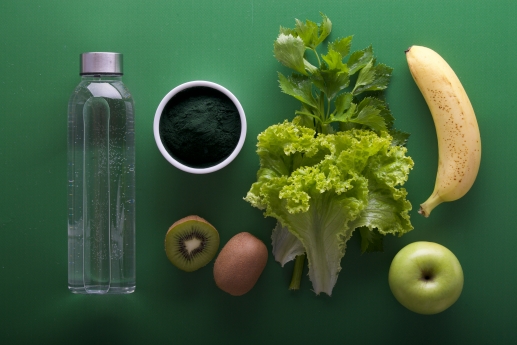Muscles: essential hydration and nutrition

Muscle composition: understanding to train better
Muscles are fascinating and complex structures that play a central role in movement, posture, and athletic performance. Understanding their composition can help strength training enthusiasts optimize their workouts and nutrition. Let’s explore the distribution of key elements in muscles and the importance of each component for your progress.
1. Muscle composition
75% water: Hydration, a key factor
Muscles are primarily composed of water, making up about 75% of their total mass. This highlights the crucial role of hydration in maintaining optimal muscle function. Even slight dehydration can lead to decreased muscle strength, reduced performance, and slower post-workout recovery.
Fitness tip: Make sure to drink at least 2 to 3 liters of water per day, and more during intense training sessions.
18% protein: The building blocks of muscle
Proteins are the primary material for muscle construction. They are essential for repairing muscle fibers after training and for muscle growth. Amino acids, the components of proteins, also play a role in many metabolic functions.
Nutrition tip: Incorporate protein-rich foods such as chicken, fish, eggs, or legumes into each meal to support your fitness goals.
5% fat: An energy reserve
Although present in small amounts, fats play a role in energy storage, muscle protection, and proper cellular function. Lipids are also necessary for absorbing fat-soluble vitamins (A, D, E, K), which are essential for overall health.
Nutrition tip: Prioritize healthy fats (omega-3s, plant-based oils, avocados) for optimal energy intake.
2% vitamins, minerals, and carbohydrates
This small percentage is still fundamental. Carbohydrates provide quick energy for workouts, while vitamins and minerals contribute to various processes, such as muscle contraction and recovery.
Fitness tip: Consume complex carbohydrates (brown rice, sweet potatoes, quinoa) along with fruits and vegetables rich in micronutrients.
2. Why is hydration essential for muscles?
Water is the primary component of muscles. Proper hydration:
- Maintains muscle flexibility and elasticity,
- Promotes better nutrient circulation,
- Reduces the risk of cramps and injuries,
- Speeds up post-workout recovery.
Tips for staying hydrated:
- Drink before, during, and after your workouts.
- Add natural electrolytes (coconut water, lemon, mineral salt) to compensate for sweat loss.
3. Optimize your results with a holistic approach
To maximize muscle performance, combine proper hydration, a diet rich in proteins and quality carbohydrates, and training suited to your goals. Taking care of your muscles also means ensuring good sleep and adequate recovery.
Conclusion
Muscle composition highlights the importance of proper hydration and balanced nutrition in improving athletic performance. Whether you are a beginner or an experienced athlete, remember: your muscles reflect what you give them. Take care of them to achieve your fitness and strength training goals!
Credits
